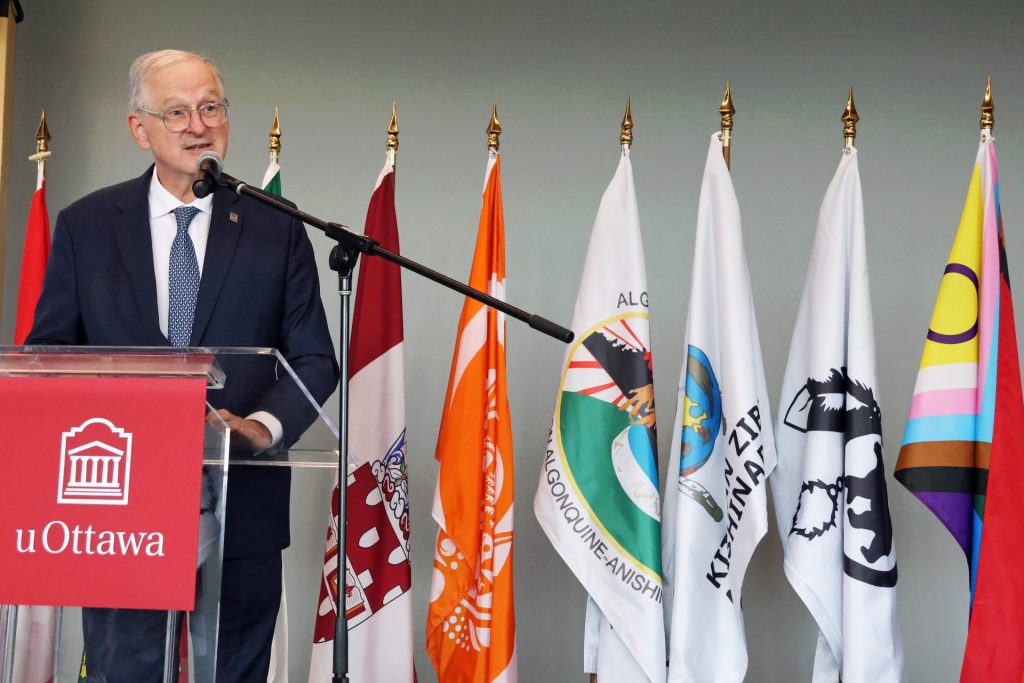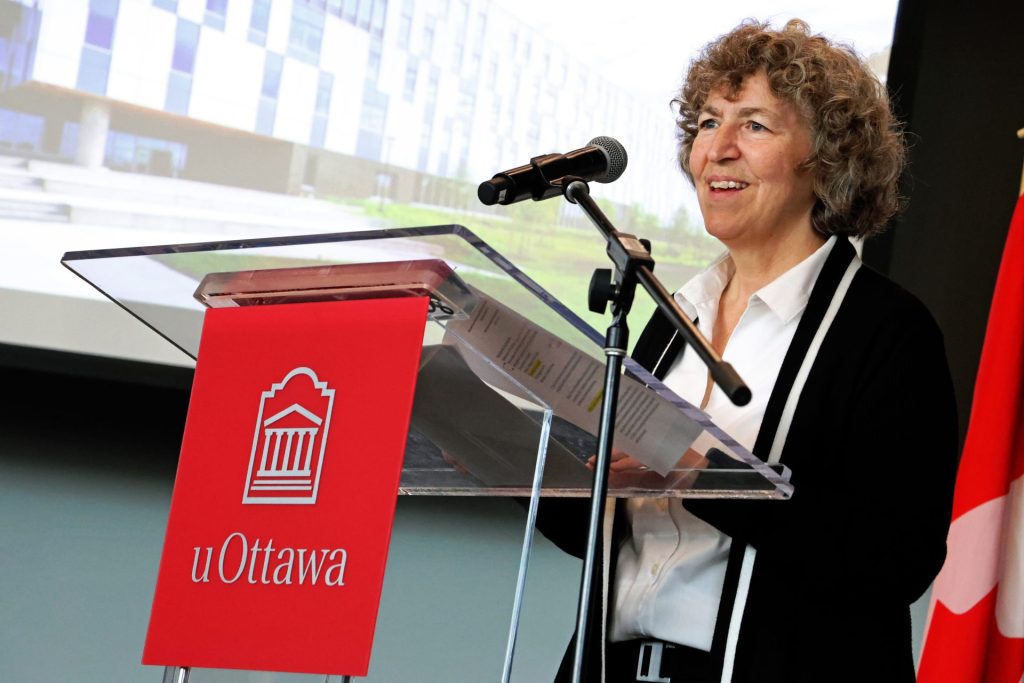It was state-of-the-art meets cultural traditions during this morning’s unveiling of the uOttawa Faculty of Health Sciences’ modern new home — a place for research, education and training that officials hope will alleviate the unprecedented shortage of health-care professionals.
The University of Ottawa’s new chancellor, Claudette Commanda, led an Indigenous ceremony, known as a smudging, using sage and sweetgrass. It was held in the main floor gathering space, BMO Social.
“I’m very honoured to do this ceremony to bless this beautiful building,” she said of the Faculty of Health Sciences’ connection to healing, medicine and knowledge.
(Sponsored)

Borden Ladner Gervais LLP and partners lead with generosity
Borden Ladner Gervais LLP (BLG) are no strangers to supporting charities in the nation’s capital. From the Boys & Girls Club of Ottawa to Crohn’s and Colitis Canada to the

SnowBall 2026: A premier networking event with purpose returns to 50 Sussex Dr.
As winter settles in across the capital, one of Ottawa’s most high-profile charitable and business networking events is set to return to its roots: On Wed., March 4, 2026, The
The new building represents a $130-million investment by the university. The facility is five storeys high and 250,000 square feet in size. Inside, there are 18 labs and another 18 classrooms. It can accommodate 4,000 students and an additional 700 support and teaching staff.
Located just steps from the scenic Rideau River, the building is LEED-platinum certified and considered to be one of the most sustainable and energy efficient in Ottawa. The construction partner was PCL.

The new Faculty of Health Sciences houses the schools of nursing, nutrition sciences and rehabilitation sciences, which includes audiology, speech language pathology, physiotherapy and occupational therapy.
“This building marks a milestone in the university’s transformation as we focus on the need … to strengthen health care, health science research and development, and new approaches for caring for patients,” uOttawa president Jacques Frémont told the room. “Such focus is desperately needed in Canada. We face an aging population, rising care and treatment costs, and a chronic shortage of health-care professionals; we all know that.”
According to Employment and Social Development Canada, there were more than 96,000 unfilled positions in health occupations as of 2022.
Frémont recognized the role technology has in assisting and modernizing health care. But, it won’t replace people, he said, quoting one of our country’s leading health journalists, André Picard, from a recent speech he gave to students of uOttawa’s health sciences program. “A machine can’t feel compassion and empathy but you can, people can, and that’s what we will work on in this building in the next years.”
Frémont called the new health sciences building “an inspired example” of how the university is determined to be a national leader in health and medical research training and education. He also called the new facility “a game-changer” for Franco-Ontarians and Franco-Canadians.


The audience gave a standing ovation to Lucie Thibault, dean of the Faculty of Health Sciences, as she approached the podium to deliver some brief remarks about the “monumental project”. It had been the faculty’s dream to have such a building, she said.
“Health, a most precious asset, has always been at the core of our mission,” said Thibault. “Our commitment to empowering the next generation of health and well-being pioneers and professionals, as well as our leading researchers, has grown stronger over the years. Today, with our state-of-the-art facility, we are providing the resources to turn our ambitions into reality.”
As part of the unveiling, invited guests were able to tour the place, which includes simulation labs to help prepare nurses for real-life patient-care scenarios. There’s also a metabolic chamber to help researchers better prevent and treat obesity, and a hypoxic chamber that researchers can use to study oxygen deprivation effects.
Among the Ottawa health-care leaders to attend were Cameron Love, CEO of The Ottawa Hospital; CHEO chief executive Alex Munter; Dr. Peter Liu, chief scientific officer and vice president of research at the University of Ottawa Heart Institute; and Montfort Hospital CEO Dominic Giroux. Also present was Victor Pellegrino from BMO, which donated $2.5 million to the project.






